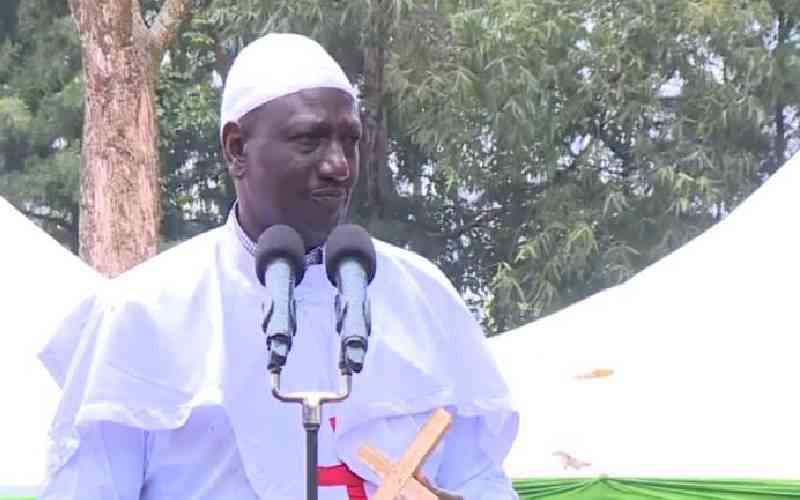×
The Standard e-Paper
Smart Minds Choose Us

The UDA presidential candidate William Ruto, and his running mate Rigathi Gachagua expect to reap maximum votes from church adherents who they have been courting.
From signing a Memorandum of Understanding with the Pentecostal and Evangelical churches alliance, to promising a Cabinet docket for church affairs, Dr Ruto has always presented himself as an ardent, philanthropic and strict Christian.